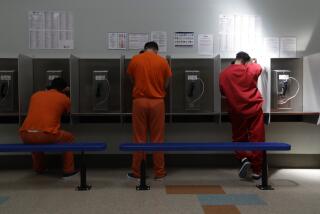No More Going It Alone? : U.S. allies must take on bigger support role
The new realities of global politics and domestic economics are guiding the most radical revision in U.S. defense strategy in the last 30 years. Defense Secretary Les Aspin and the Joint Chiefs of Staff are confronted with the need to meet American military responsibilities around the world with fewer resources than have been available in the past. Over the next four years President Clinton plans to reduce Pentagon spending by 21%. That means fewer troops, planes, tanks and ships. It means that dealing with more than one regional conflict at a time will be a major challenge. It means, though the Pentagon isn’t immediately saying so, that the nation’s allies will have to begin to do a lot more in the way of international burden-sharing.
The new strategy is informally known as “win-hold-win.” If two regional conflicts that affect world peace or U.S. national interests erupt at the same time, most available military force would be committed to try to win one quickly. Meanwhile, air and sea power would be used to try to contain the second conflict until main element forces from the other conflict could be committed. The realism of this strategy is that it is tailored to the new era of limits. Where it fails the test of reality--or at least where its key supposition is most dubious--is in counting on air and naval power to hold an aggressor in check until powerful land forces can be sent in to fight and win a war. There’s no precedent to support that hope.
This is where help from the allies becomes not just politically desirable but strategically indispensable.
Undersecretary of State Peter Tarnoff raised a bit of a flap in the Clinton Administration a week ago when he quite accurately suggested in a background talk to reporters that unilateralism in dealing with international crises is now pretty much a thing of the past, because “we don’t have the money” to do what we once could. Because of that, “there will have to be genuine power sharing and responsibility sharing” with friendly states from now on.
Are the European allies, who are also shrinking their armed forces, ready to assume greater international responsibilities? If their floundering over Bosnia is an indicator, the outlook seems less than promising. In the end, everyone still looks to the United States to lead. That leadership role is destined to continue. But emerging U.S. strategy clearly indicates that this country is no longer economically able, and thus is no longer politically willing, to go it alone. Responsibility sharing has become a necessity in this new era of limits. The great need now is to have it also become a fact.
More to Read
Get the L.A. Times Politics newsletter
Deeply reported insights into legislation, politics and policy from Sacramento, Washington and beyond. In your inbox three times per week.
You may occasionally receive promotional content from the Los Angeles Times.






